What 'Nurturing Relationships' means to me
Reflections
In this special joint reflection, seven young Churchie students share about what the 2021 Diocesan theme ‘Being Together: Nurturing Relationships’ means to them in the context of their friendships and families: “Over the years, my younger brother…and I have developed a strong relationship. Sometimes we don’t get along, but because we have developed that strong bond, it is quite simple to resolve arguments”
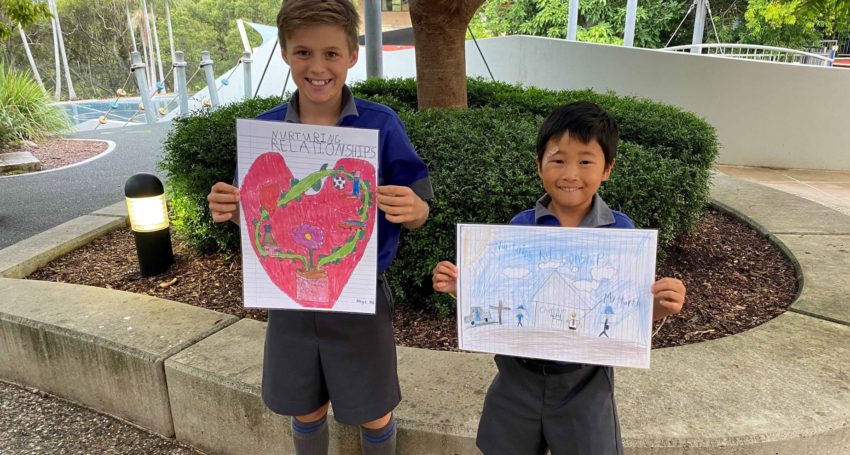
In this special joint reflection, seven young Churchie students share about what the 2021 Diocesan theme ‘Nurturing Relationships’ means to them.
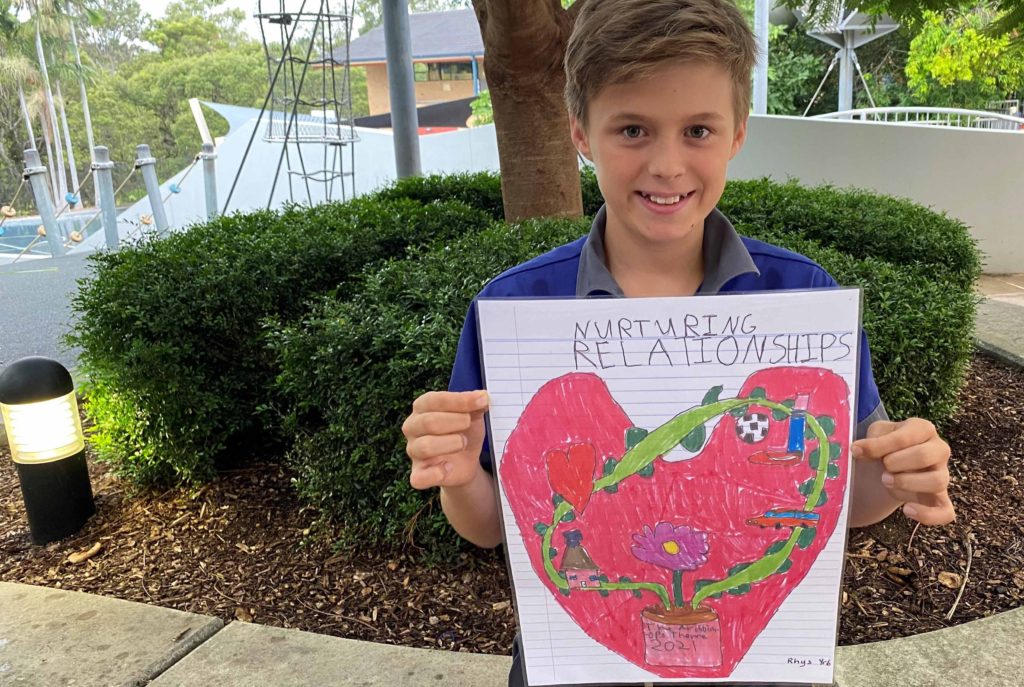
“I did this drawing about the things that are important to me. I love playing soccer, my home and our car. The love heart is for relationships within my family. The flower pot is because my parents like flowers” (Rhys, Year 6 Churchie student)
Rhys – Year 6 student, Churchie
‘Nurturing relationships’ is about trying to make a new relationship or trying to keep them. It means the relationship is important to you.
I did this drawing about the things that are important to me. I love playing soccer, my home and our car. The love heart is for relationships within my family. The flowerpot is because my parents like flowers.
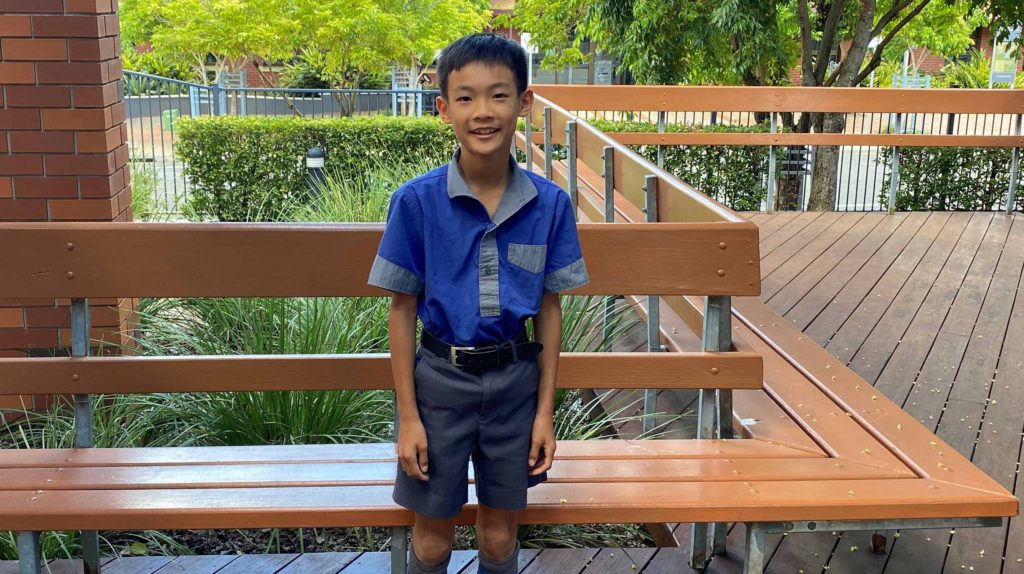
“A child needs to learn about nurturing relationships because it makes them more trustworthy” (Josh, Year 5 Churchie student)
Josh – Year 5 student, Churchie
‘Nurturing relationships’ means spending time together and learning each other’s personalities. It also means telling each other our needs and wants and how we can do better to change each other’s lives.
I believe nurturing relationships is telling your friends or family what you are struggling with and asking for help. For example, if I was saying I am struggling making money, I could tell my family and friends and they might help me.
Advertisement
I think nurturing relationships is helping one another and trusting each other. However, if you lie to your friends, you are not nurturing relationships and you will break relationships. For example, if I say to God, “I love God and God is the best” and then I worship another idol, that would be losing God’s trust.
I think young people need to nurture relationships because they need to learn two times more than older people so they can grow up. The benefits are they would make lots of friends this way and never get bored. A child needs to learn about nurturing relationships because it makes them more trustworthy.
Every night our family nurtures relationships by telling each other if we had a good or bad day. We nurture relationships with God, too.
My mum tells me that everybody has the right to feel hurt and you cannot demand that they don’t feel hurt by your actions. If you never feel emotions, you are basically a robot.
By nurturing relationships, I got more and more friends and I am happy, and my life is getting better. I have more confidence to tell the truth and do the right thing.
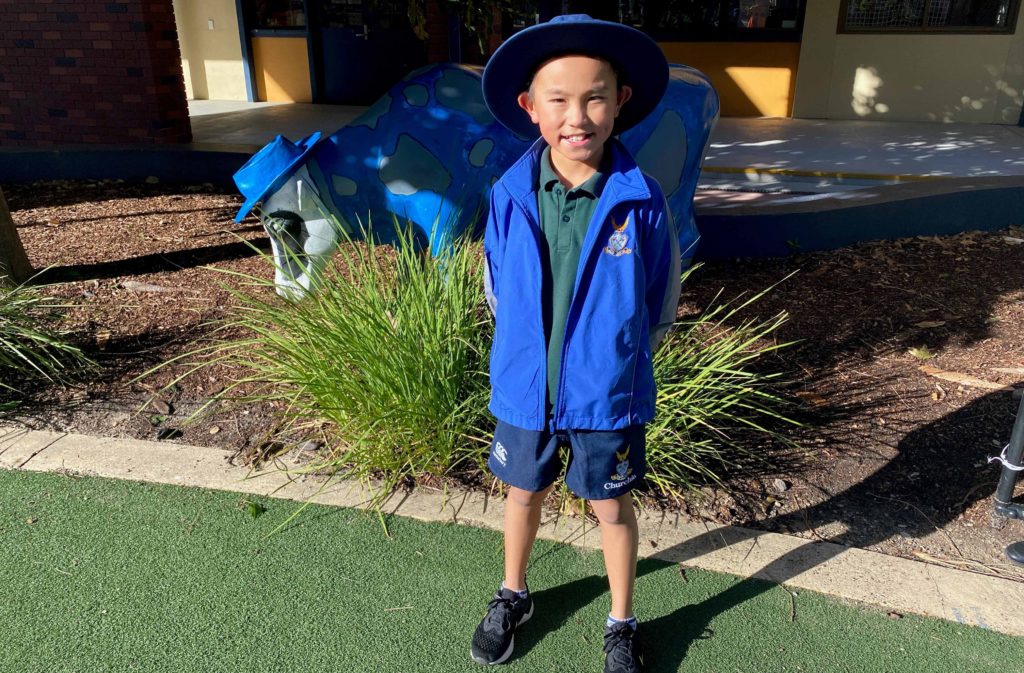
“‘Nurturing relationships’ involves caring for and protecting someone or something. It is a very important aspect of our lives” (Zachary, Year 6 Churchie student)
Zachary – Year 6 student, Churchie
‘Nurturing relationships’ involves caring for and protecting someone or something. It is a very important aspect of our lives.
It is vitally important for all people to nurture relationships, particularly young people. We learn from our environment and this includes our friends and family. Fostering good relationships is an important element of growth.
My grandmother, whom I affectionately call ‘Ba’ (Vietnamese for ‘grandmother’) is a pure example of the importance of nurturing relationships. She was only 29 years old when she left war-ravaged Vietnam with her three young children, the youngest of who is my mum. She was only six months of age at the time. They were part of the Vietnamese ‘boat people’ – refugees whom Australia was kind enough to welcome. Due to this generosity, she was able to bring up her three children in Australia with all the freedoms which were lost to her in Vietnam. It was her love, determination and sheer hard work that all her children went on to be successful. I am very proud that she is my grandmother and think she is truly brave to embark on such a journey all those many years ago.
I think this has impacted me immensely as it has given me a greater appreciation of what family means. My grandmother’s journey demonstrates the sacrifices she made to give her children a better future. There are many lessons I can learn from this – determination, resilience and hard work. After all, there is much to be grateful for.
Thank you for allowing me to share my thoughts.
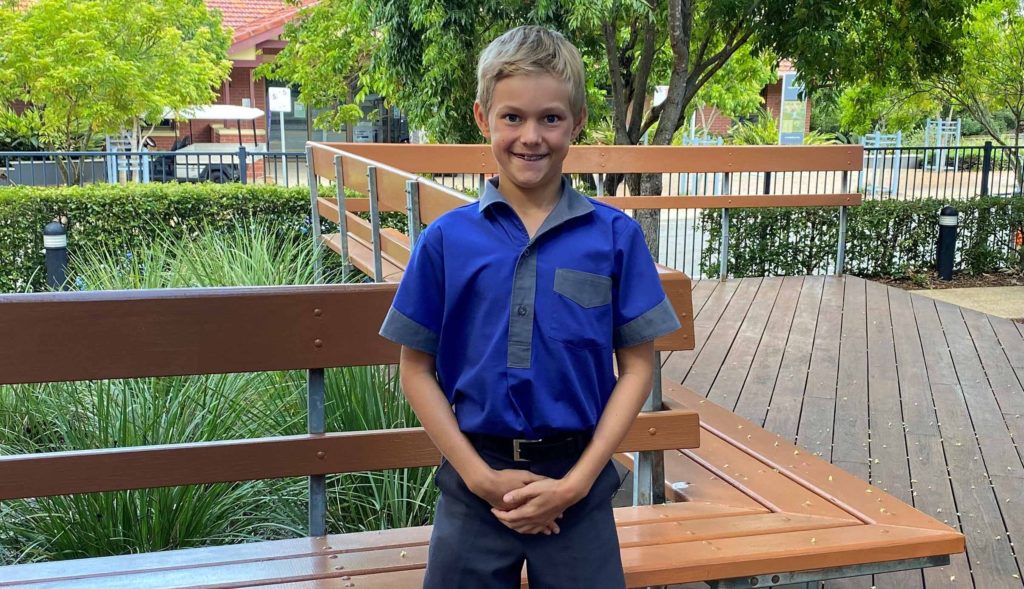
“Over the years, my younger brother Will, and I have developed a strong relationship. Sometimes we don’t get along, but because we have developed that strong bond, it is quite simple to resolve arguments” (Tom, Year 6 Churchie student)
Tom – Year 6 student, Churchie
To me ‘nurturing relationships’ means to value a relationship and value the other person. It also means investing time into cultivating a respectful and healthy connection.
It is important for young people to nurture relationships because these relationships could turn into close friends who are helpful in life. This is especially important to start at an early age, as it is much easier to make lifelong friends.
Over the years, my younger brother Will, and I have developed a strong relationship. Sometimes we don’t get along, but because we have developed that strong bond, it is quite simple to resolve arguments.
This impacts me by being able to have a better relationship with my brother. This has many benefits such as being able to assist and support one another during life’s ups and downs.
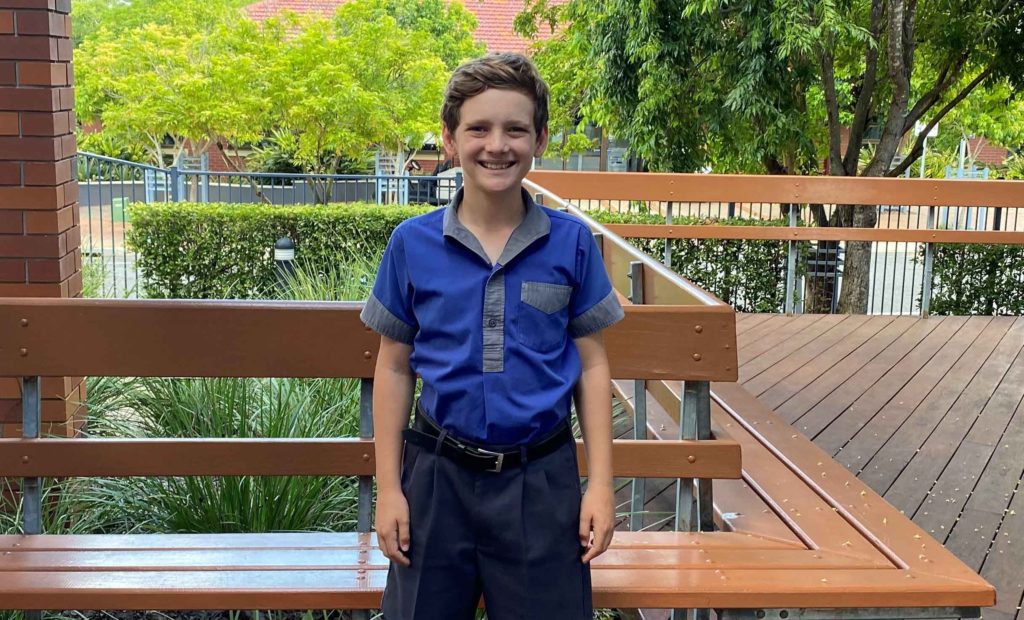
“When I nurture a relationship, two people are happy” (Archie, Year 5 Churchie student)
Archie – Year 5 student, Churchie
‘Nurturing relationships’ means to me not hurting others’ feelings or breaking their trust because they may not forget, and they will find it hard to “open their gates back up to you.” This is inspired by Proverbs 18.19, which we discussed in the Religious Education lesson, ‘The Power of Words’.
If young people don’t nurture relationships they’ll have no friends to play with and will be lonely in the long term.
Related Story
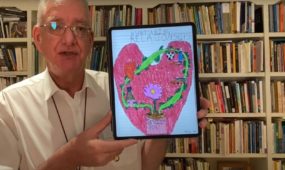 Video
Video
Churchie explores this year’s Diocesan theme, ‘Nurturing Relationships’
I taught my sister Lulu to bowl and bat in cricket in the backyard at home. We ended up having a great time together and now she can bowl me out!
This helped both of us because she learnt how to bowl (and she got better) and that helps Lulu, and I got to practise more because I have someone to bowl to me.
When I nurture a relationship, two people are happy. The friend because I’m being kind and me because my friend is kind back. It also feels good to be kind to one another.
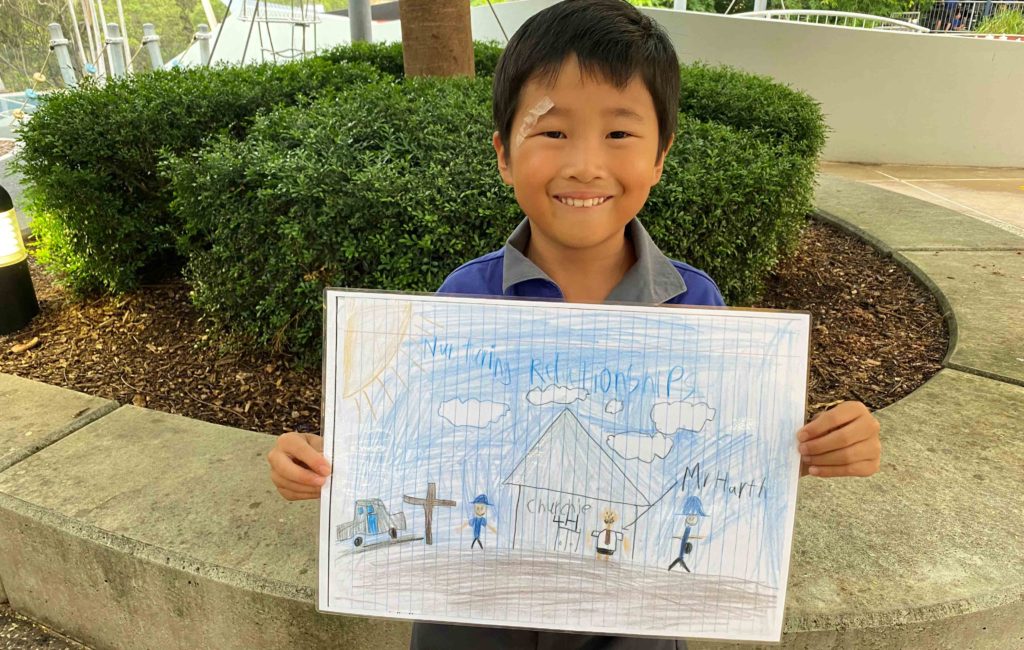
“It is important for young people to nurture relationships because then little people grow into good people” (Takamasa, Year 4 Churchie student)
Takamasa – Year 4 student, Churchie
To me ‘nurturing relationships’ means being kind and being a good friend.
It is important for young people to nurture relationships because then little people grow into good people. Small people copy the older people and then do better.
One day someone tripped over and everyone at Churchie stopped to say, “Are you ok?” This made me feel so good and nice because they are good and nice.
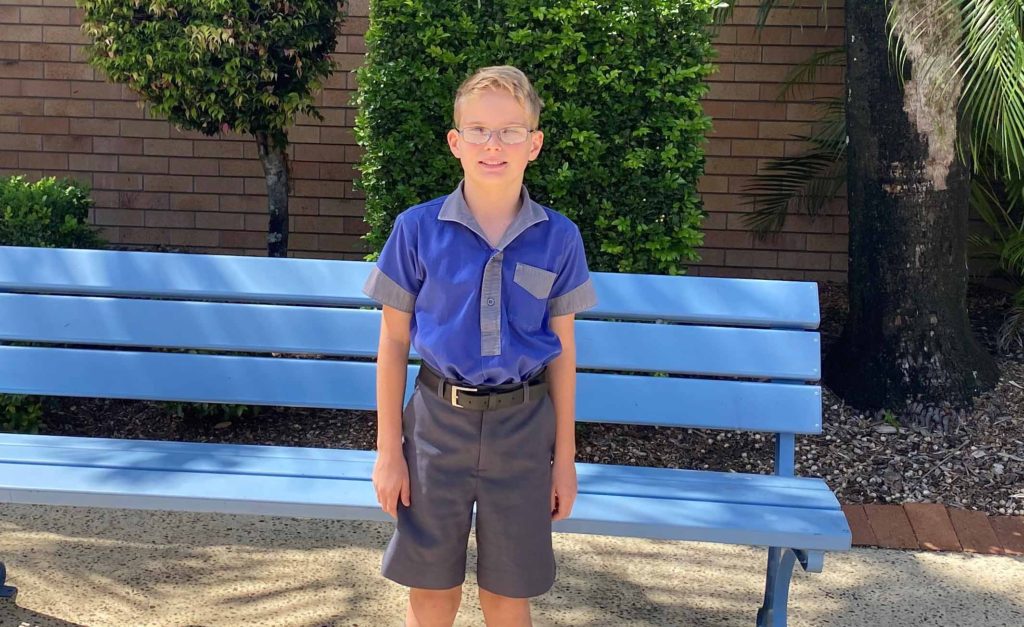
“To me, ‘nurturing relationships’ means seeking to make new friends and care for them” (Ashley, Year 5 Churchie student)
Ashley – Year 5 student, Churchie
To me, ‘nurturing relationships’ means seeking to make new friends and care for them.
It is important to nurture relationships so when young people grow up they have many friends.
Someone new to Churchie came and sat with me and the people I was sitting with. He didn’t know many people there, but he still did it. He is now friends with the people he sat with.
That action impacted me because it showed me how to make friends and sit with people, even if you don’t know them.
We should always nurture relationships and make new friends.





